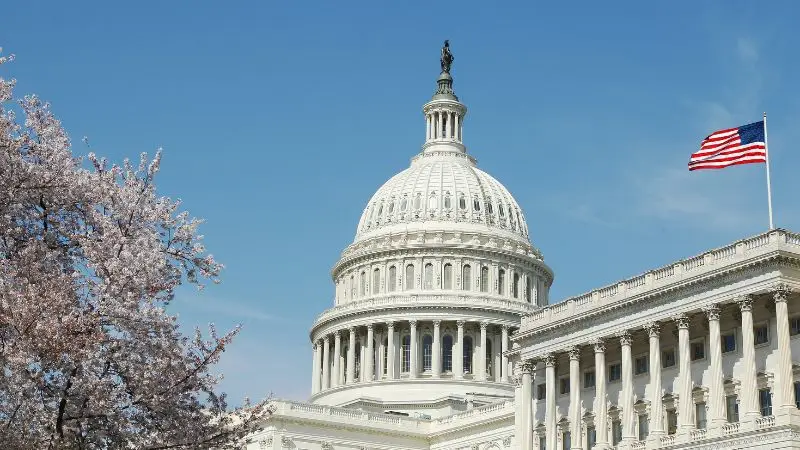
On July 4, 2025, President Donald Trump signed the One Big Beautiful Bill Act into law, finalizing one of the most comprehensive tax reforms since the Tax Cuts and Jobs Act (TCJA) of 2017. The bill introduces a wide range of changes, from making TCJA provisions permanent to adding entirely new deductions and sunsetting major clean energy incentives. While the implications will vary based on your situation, the common thread is this: nearly every taxpayer, business, and investor will feel the impact.
At Sorren, we believe that tax policy shouldn’t be overwhelming. Our goal is to help you understand how changes affect your situation and identify the opportunities they create. Here’s what you need to know about the key provisions.
Individual Taxpayers: Renewed Relief and New Deductions
The bill brings clarity and continuity for individual taxpayers by making several TCJA provisions permanent while introducing new deductions designed to benefit working-class families, seniors, and those with modest savings. But with many new rules set to phase out after 2028, there’s also urgency in planning ahead.
Permanent Tax Rates and Standard Deduction
The TCJA-era tax brackets are now permanent. The standard deduction increases to $15,750 for single filers and $31,500 for joint filers in 2025, with annual inflation adjustments. These updates are retroactive to the start of the year, meaning they already apply to your 2025 tax return.
State and Local Tax (SALT) Cap Adjusted
The SALT deduction cap has temporarily increased to $40,000 through 2029, with a gradual phase-down for high earners (MAGI over $500,000). In 2030, it reverts to $10,000. Notably, current pass-through workarounds like PTETs remain intact, preserving a key planning strategy for business owners.
New Deductions for Working Americans
To alleviate the tax burden on service workers and middle-income earners, the bill introduces several new deductions available from 2025–2028:
- Up to $25,000 annually for qualified tip income
- Up to $12,500 ($25,000 joint) for overtime pay
- Up to $10,000 for car loan interest, but only on vehicles assembled in the U.S.
These deductions are available regardless of whether you itemize and begin to phase out at higher income levels.
Support for Seniors and Families
A new $6,000 personal exemption for individuals aged 65+ helps ease the tax impact on retirees. Additionally, the child tax credit rises to $2,200 per child, while the child and dependent care credit is enhanced from 35% to 50% of qualified expenses, with expanded phaseout thresholds.
Charitable Giving Made Simpler
Non-itemizers can now deduct up to $1,000 ($2,000 for joint filers) in qualified charitable contributions, providing a tax incentive for generosity, even for those who take the standard deduction.
Business Provisions: A Rebalanced Playing Field
The bill delivers significant relief for business owners and corporate taxpayers, particularly those who invest in equipment, innovation, or real estate. Many of the TCJA’s expiring provisions are now made permanent, while others are retooled to encourage domestic investment and simplify tax planning.
Bonus Depreciation and Section 179 Enhancements
The permanent restoration of 100% bonus depreciation gives businesses the ability to fully expense qualifying property in the year it’s placed in service, starting January 19, 2025. Section 179 expensing is also increased to $2.5 million with a $4 million threshold, allowing greater flexibility for capital investments.
Research and Development Expensing Restored
Domestic research expenses are now fully deductible beginning in 2025. The bill also offers retroactive relief for small businesses and optional catch-up deductions for costs incurred in 2022–2024. This change reestablishes a vital benefit for companies focused on innovation and software development.
Business Interest Deductions Adjusted
Depreciation and amortization are once again excluded from adjusted taxable income (ATI) for the Section 163(j) interest deduction limitation. However, new restrictions apply starting in 2026, limiting how capitalized interest is treated. The result is a mixed bag, while relief is restored, careful modeling will be essential.
Pass-Through Entities: More Room to Plan
Small business owners and professional service firms will benefit from expanded access to the Section 199A deduction, as well as newly introduced minimum deductions designed to support entrepreneurs at every level.
QBI Deduction Made Permanent
The 20% qualified business income (QBI) deduction under Section 199A is now permanent. The phase-in thresholds for specified service trades or businesses (SSTBs) have increased, and a new $400 minimum deduction is available to filers with at least $1,000 in qualifying income.
These updates ensure a broad range of businesses, from family-owned shops to consulting firms, can continue to benefit from reduced tax on their passthrough income.
Long-Term Investment Incentives
The bill encourages long-term investment in small businesses and underserved communities, while revising rules to improve compliance and boost transparency.
Opportunity Zones Expanded and Extended
Opportunity zones are made permanent, with new designations starting in 2027. A 10% basis step-up is available after five years, with a full FMV step-up after ten. Rural zones receive a 30% boost, and all OZs face new reporting requirements beginning in 2026.
QSBS Gains More Value
The gain exclusion for qualified small business stock (QSBS) increases to 75% after four years and 100% after five, with higher exclusion caps and asset thresholds. This makes QSBS an even more powerful tool for founders and early investors.
International Tax: GILTI and FDII Reimagined
The bill makes dramatic changes to global tax provisions, simplifying some rules while tightening others. U.S. multinationals will need to reassess their structures to optimize under the new regime.
New Labels, New Rules
GILTI is now “net CFC tested income,” and FDII becomes “foreign-derived deduction eligible income.” Both carry a new 14% effective tax rate, with revised deduction and FTC allocation rules. The bill also reduces the foreign tax credit haircut and updates sourcing rules for inventory.
BEAT Adjustments
The Base Erosion and Anti-Abuse Tax (BEAT) rate increases to 10.5%. While some earlier proposed changes were removed, businesses should reevaluate their related-party payments and credit strategy under the revised rules.
Energy Provisions: The End of an Era
The bill significantly rolls back clean energy incentives, terminating or phasing out many credits introduced under the Inflation Reduction Act (IRA). While some wind and solar projects have a short grace period, most credits will sunset by 2027 or 2028.
Credits Phased Out
- EV and clean vehicle credits (25E, 30D) end after September 30, 2025
- Residential and commercial energy efficiency credits (25C, 25D, 179D) end by 2026
- Hydrogen and sustainable fuel credits end by 2028
- Section 48E and 45Y investment and production credits sunset after 2027 for wind and solar
Domestic Sourcing Rules Tighten
The bill adds sourcing restrictions that disqualify projects receiving “material assistance” from certain foreign entities, creating additional compliance and supply chain hurdles.
Additional Highlights
Form 1099 Thresholds Raised
Third-party payment platforms won’t need to issue 1099-Ks unless both 200 transactions and $20,000 are met. Form 1099-MISC and 1099-NEC thresholds increase to $2,000 in 2026.
ERC Refunds Halted
The IRS is prohibited from issuing employee retention credit refunds for claims submitted after January 31, 2024, potentially affecting businesses still waiting on payments.
Estate and Gift Tax Exemptions Raised
Beginning in 2026, the exemption increases to $15 million for individuals ($30 million for joint filers), with inflation adjustments going forward.
“Trump Accounts” for Kids
A new form of IRA for minors, called “Trump accounts,” allows $5,000 annual contributions. A $1,000 credit will be available for eligible children born between 2025–2028.
We’re Here to Help
The One Big Beautiful Bill Act reshapes the tax landscape in ways that require proactive planning, not just reactive compliance. At Sorren, we don’t just interpret the law, we help you build strategy around it. Whether you’re a business owner, investor, or individual taxpayer, our team is ready to partner with you and create a forward-looking plan tailored to your goals.





